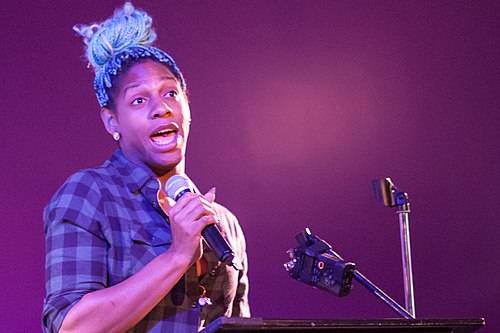Table of Contents
Who is CeCe McDonald?
CeCe McDonald, born on May 26, 1989, is a renowned African American trans woman and LGBTQ activist. She gained national recognition in June 2012 when she accepted a plea deal of 41 months for second-degree manslaughter. The case involved a man she stabbed in self-defense after she and her friends were assaulted outside a Minneapolis bar, an incident that was largely perceived as racist and transphobic. McDonald was attempting to flee when she was pursued by the man, leading her to defend herself with scissors from her purse, which resulted in the man’s death. McDonald chose the plea bargain over potentially facing a 20-year term. Her conviction sparked widespread outrage, viewed as an act of transphobia and racism against a woman who defended herself. Despite identifying as a woman, McDonald was placed in two men’s prisons. Her case received international attention, including a GLAAD Media Award-winning article on Ebony.com in May 2013.
What made CeCe McDonald famous?
Helene Montreuil, born in 1952 in Quebec, gained prominence due to her extensive academic pursuits and professional accomplishments. Her lineage traces back to her family’s long-established roots in Quebec since 1637. Montreuil’s educational journey is quite impressive, with studies in civil law at University Laval, common law at the University of Manitoba and University of Ottawa, management at University Laval, industrial relations at University of Paris I – Pantheon-Sorbonne, and ethics and education at the University of Quebec in Rimouski. Since 1976, she has been working primarily as a lawyer and has also been a professor of law, management, and ethics since 1978. A significant milestone in her personal life was her marriage to lawyer and author Michèle Morgan on September 13, 2003, at the Quebec City Palais des arts.
Is CeCe McDonald trans?
McGregor’s rise to fame can be traced back to several key moments in her life. One of the most significant was her return to cricket in late 2016, where she played for a women’s team in Canberra and expressed her desire to participate in the Women’s Big Bash League. Despite her use of drug therapy and high estrogen levels, her passion for the sport remained undeterred. In 2015, she gained national recognition when she was named Queenslander of the Year, making her a finalist for the 2016 Australian of the Year, an accolade that was eventually awarded to her former commanding officer, David Morrison. However, her relationship with the awards was tumultuous. In December 2016, she voluntarily removed herself from the Australian of the Year honour roll, expressing regret for accepting the award and criticizing it as a “farce” and a tool used by activists.


